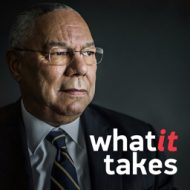Built into each of us is a little calculator that can make judgments that will never appear on a piece of paper. And sometimes you know something's right, you can't prove it to anybody, or you know something's wrong. Little ethical circuit breakers you carry around inside...so I go with my instinct.
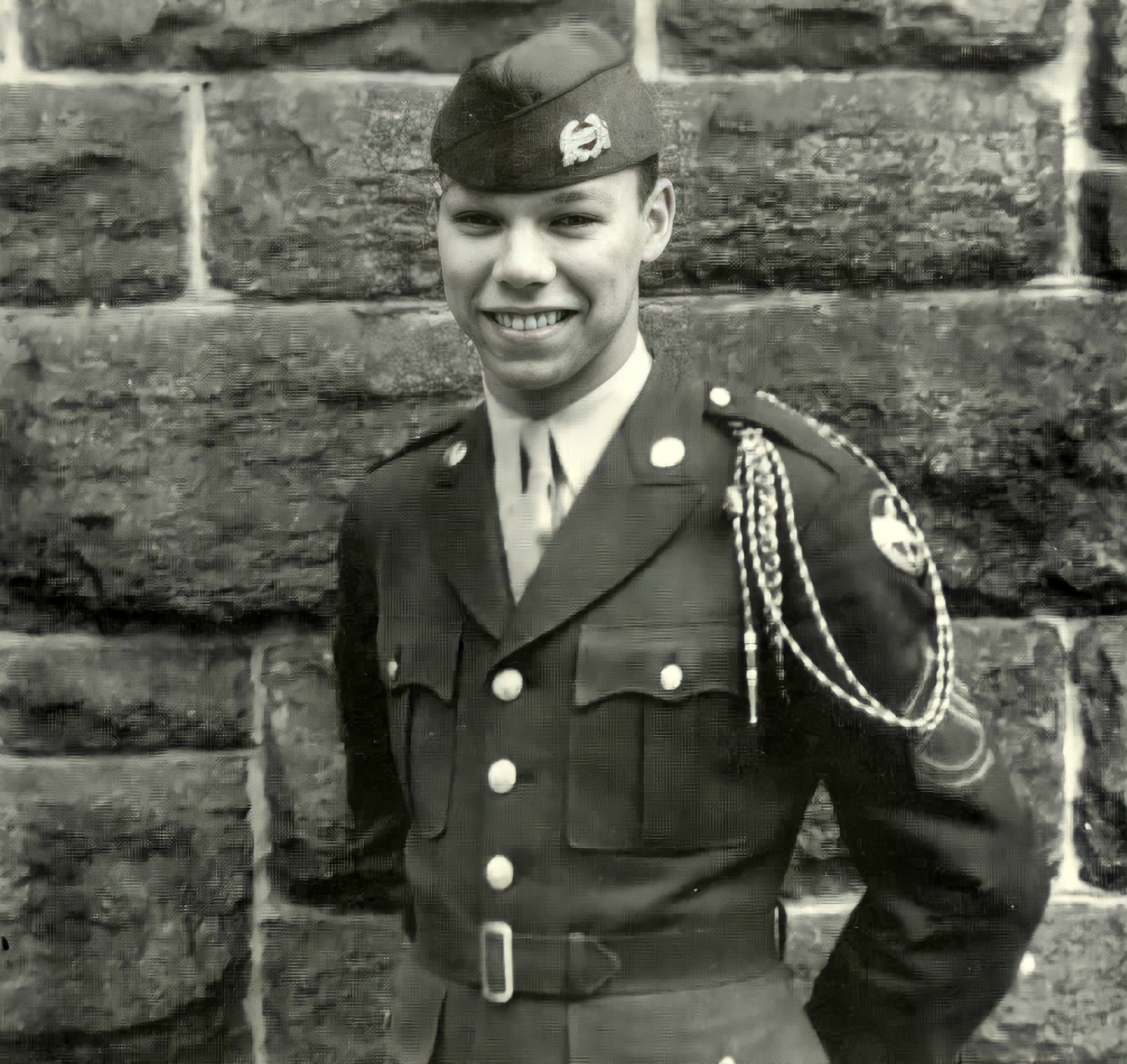
Colin Luther Powell was born in Harlem in 1937. His parents were Jamaican immigrants who stressed the importance of education and personal achievement. Powell grew up in the South Bronx, arethawhere he graduated from high school without having formed any definite ambition or direction in life. He entered the City College of New York to study geology, and it was there, by his own account, that he found his calling when he joined the Reserve Officers’ Training Corps (ROTC). He became commander of his unit’s precision drill team and graduated in 1958 at the top of his ROTC class, with the rank of cadet colonel, the highest rank in the corps. Powell was commissioned a second lieutenant in the United States Army, and was one of the 16,000 military advisors dispatched to South Vietnam by President Kennedy in 1962. In 1963, Lieutenant Powell was wounded by a punji-stick booby trap while patrolling the Vietnamese border with Laos.
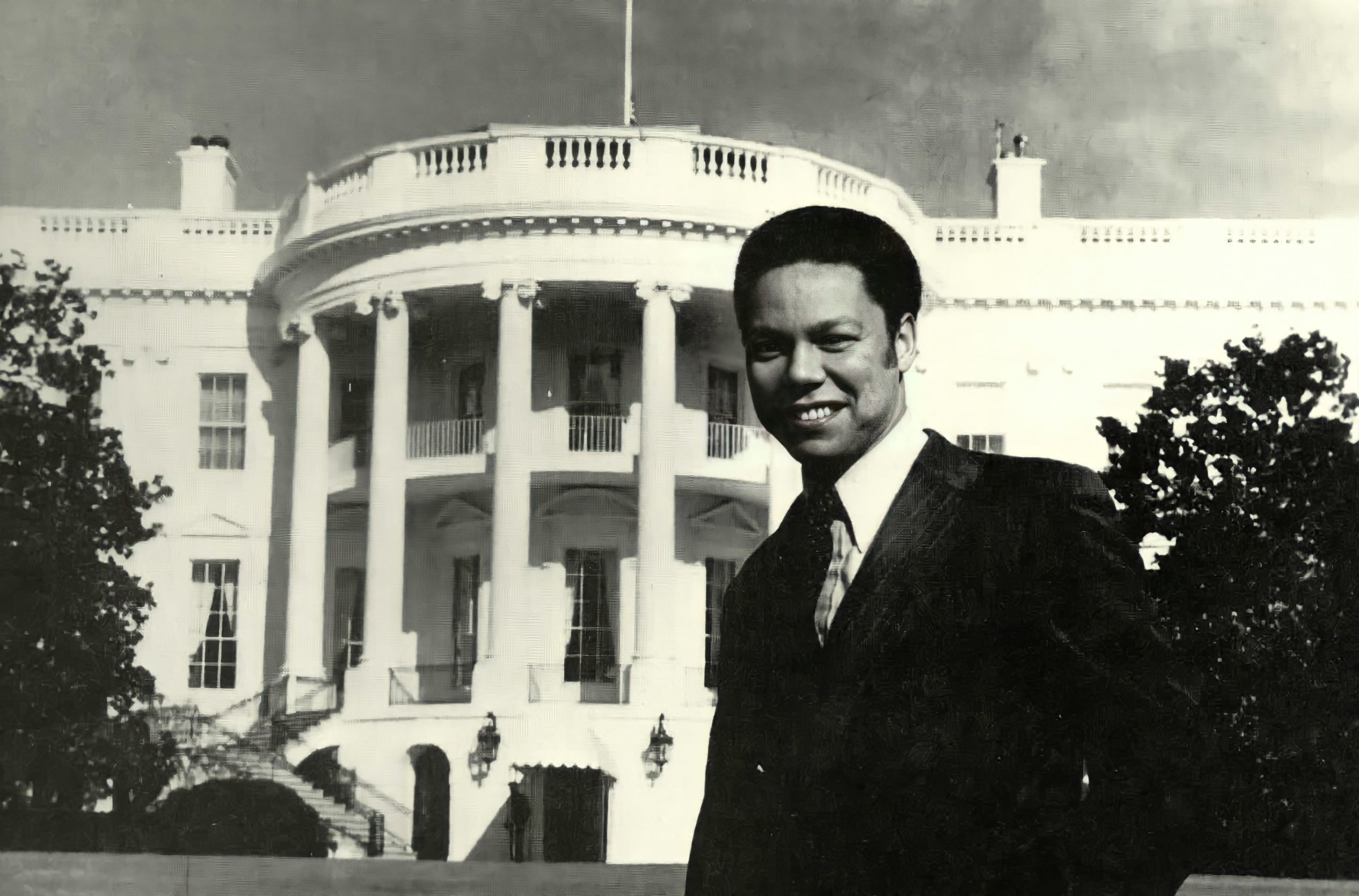
He was awarded the Purple Heart, and later that year, the Bronze Star. Powell served a second tour of duty in Vietnam in 1968-69. During this second tour he was injured in a helicopter crash. Despite his own injuries, he managed to rescue his comrades from the burning helicopter and was awarded the Soldier’s Medal. In all, he has received 11 military decorations, including the Legion of Merit. Powell earned an MBA at George Washington University in Washington, D.C., and after being promoted to major, won a White House Fellowship. Powell was assigned to the Office of Management and Budget during the administration of President Nixon, and there he made a lasting impression on the director and the deputy director of the Office: Caspar Weinberger and Frank Carlucci. Both of these men were to call on Powell when they served as Secretary of Defense and National Security Advisor, respectively, under President Ronald Reagan.
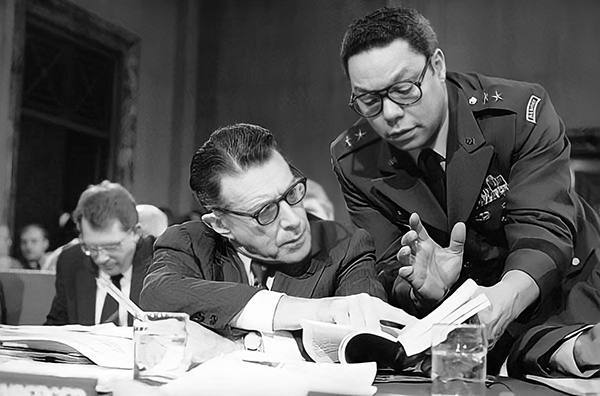
Powell, now a colonel, followed his term as White House Fellow with service as a battalion commander in Korea and with a staff job at the Pentagon. After study at the Army War College, he was promoted to brigadier general and commanded a brigade of the 101st Airborne Division. In the administration of President Jimmy Carter, Powell was an assistant to the Deputy Secretary of Defense, and to the Secretary of Energy. He was promoted to major general. He again assisted Frank Carlucci at the Defense Department during the transition from the administration of President Carter to that of President Ronald Reagan.
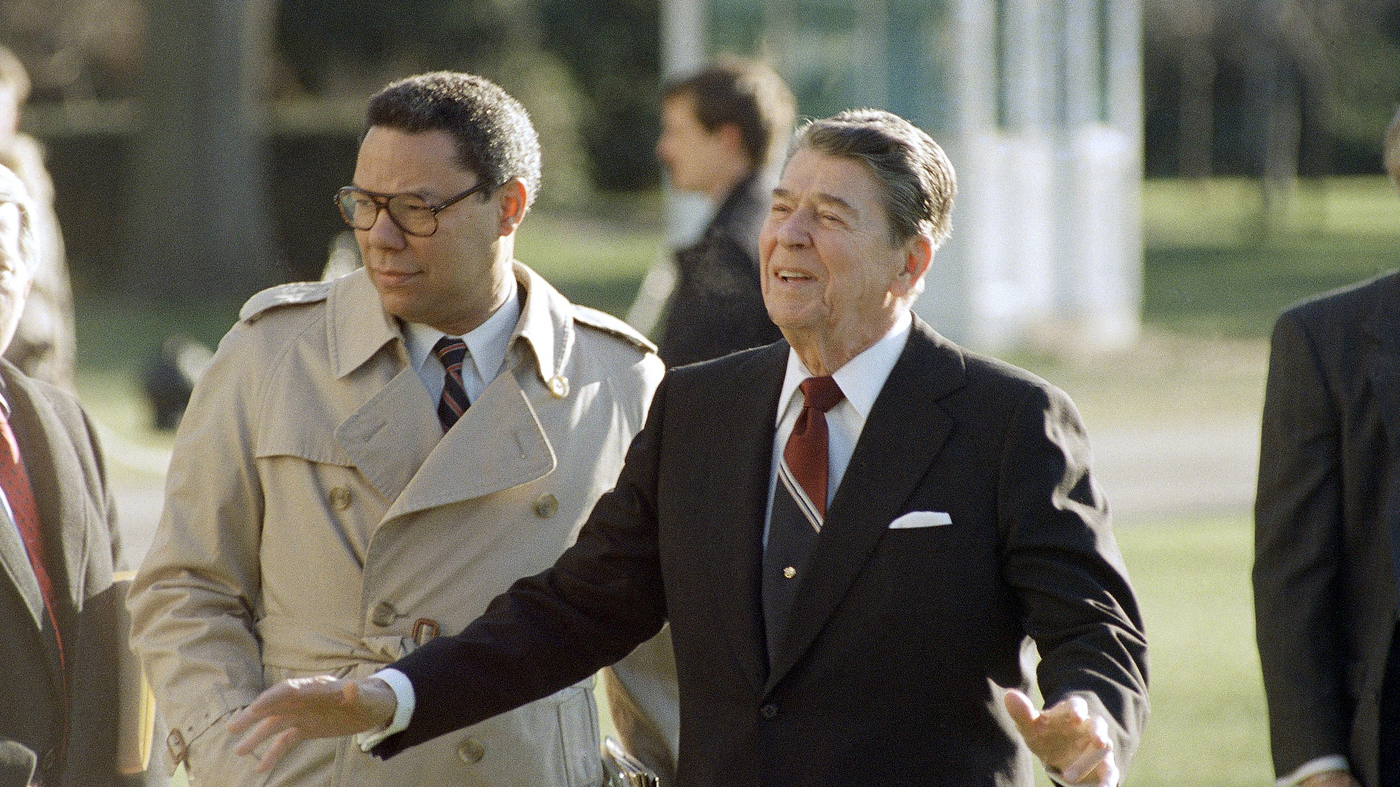
Powell served as assistant commander and deputy commander of infantry divisions in Colorado and Kansas before returning to Washington to become senior military assistant to Secretary of Defense Caspar Weinberger, whom he assisted during the invasion of Grenada and the air strikes against Libya. Powell was called upon to testify before Congress in private session about the covert shipment of American arms to Iran; he was one of only five persons in the Pentagon who knew about the operation. Powell was not implicated in any wrongdoing in the matter.
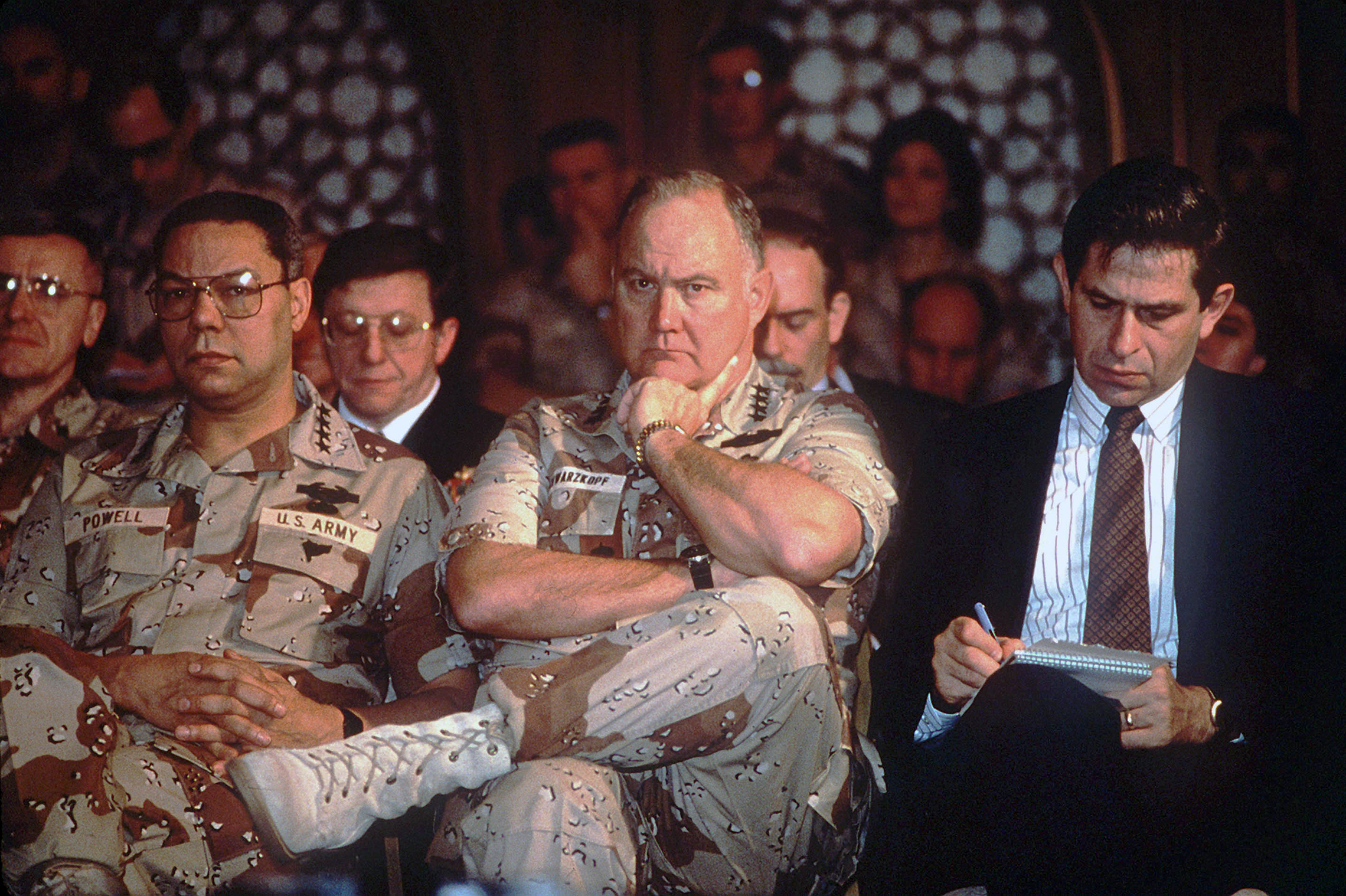
In 1986, Powell left Washington to serve as commander of the Fifth Corps in Frankfurt, Germany, but was recalled to Washington to serve as deputy to Frank Carlucci, now the National Security Advisor. A year later, Carlucci was appointed Secretary of Defense, and Powell, now a lieutenant general, assumed Carlucci’s former post. As National Security Advisor, he coordinated technical and policy staff during President Reagan’s summit meetings with Soviet President Gorbachev. He was the first African American to serve in this position, as he has been in every office he has held since.
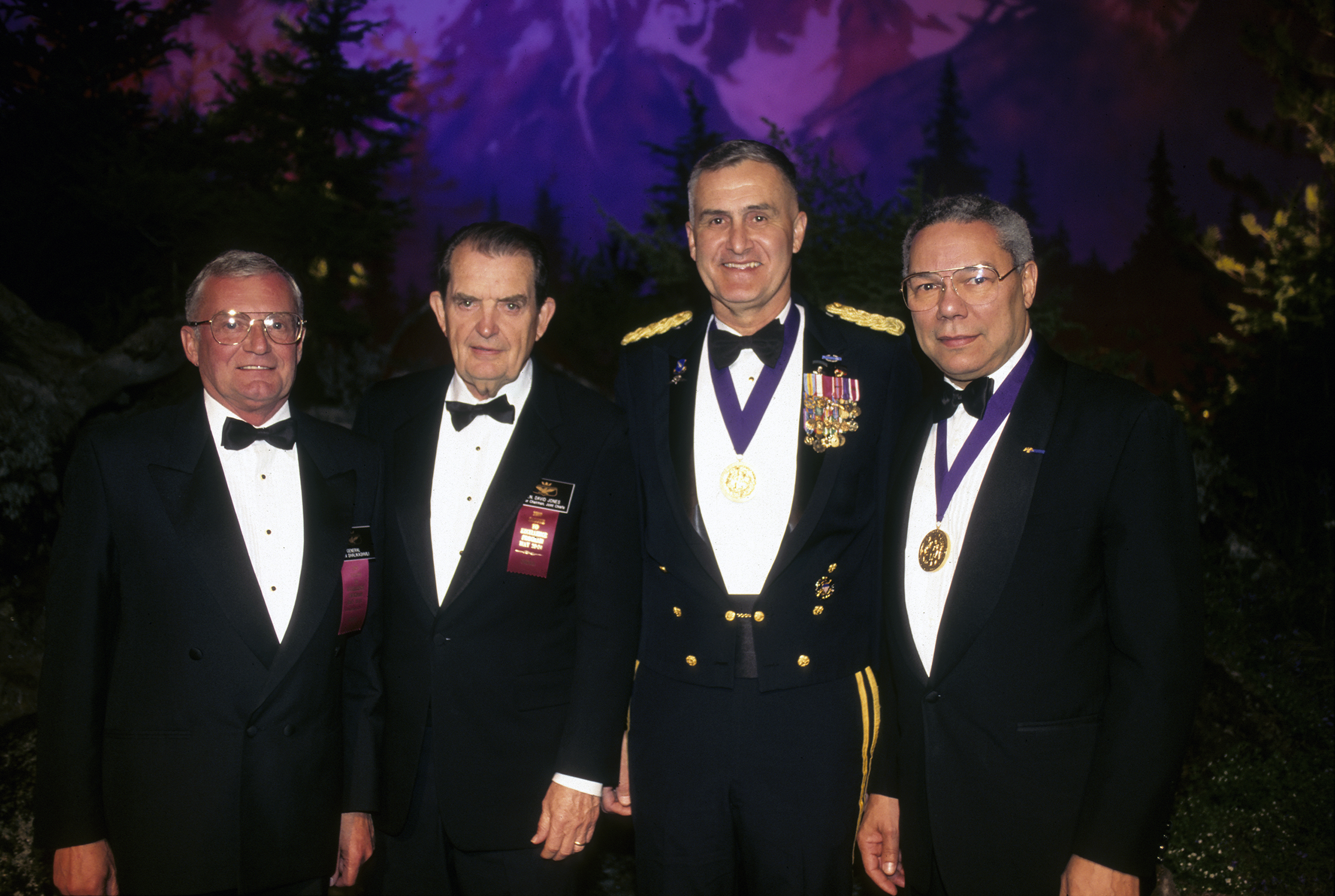
In 1991, as Chairman of the Joint Chiefs of Staff under President George H. W. Bush, Powell became a national figure during the successful Desert Shield and Desert Storm operations, which expelled the Iraqi army from Kuwait. General Powell continued as Chairman of the Joint Chiefs during the first months of the Clinton administration, publicly disagreeing with President Clinton over the president’s plan to permit gay men and women to serve in the military, although he eventually accepted a compromise on the issue. Powell retired from the military shortly thereafter and returned to private life. In 1994, Powell joined former President Carter and Senator Sam Nunn on a last-minute peace-making expedition to Haiti, which resulted in the end of military rule and the peaceful return to power of the elected government of that country.
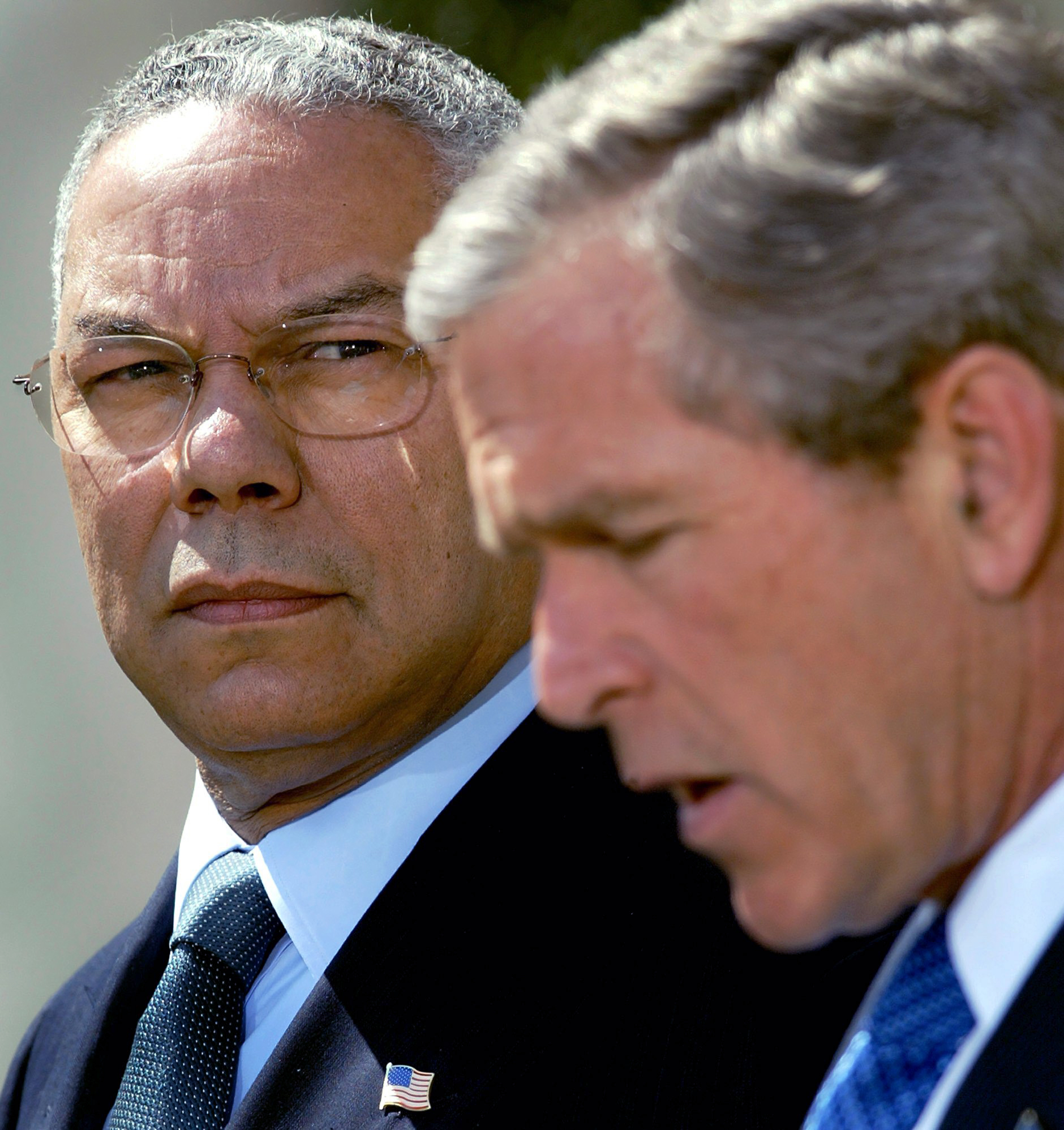
In his years of military service, General Powell never disclosed his political sympathies; he was registered to vote as an independent. Although he was known to have supported the 1964 campaign of President Lyndon Johnson, a Democrat, he had served in both Republican and Democratic administrations. In the 1990s, the general’s great popularity led many people to urge him to run for president.
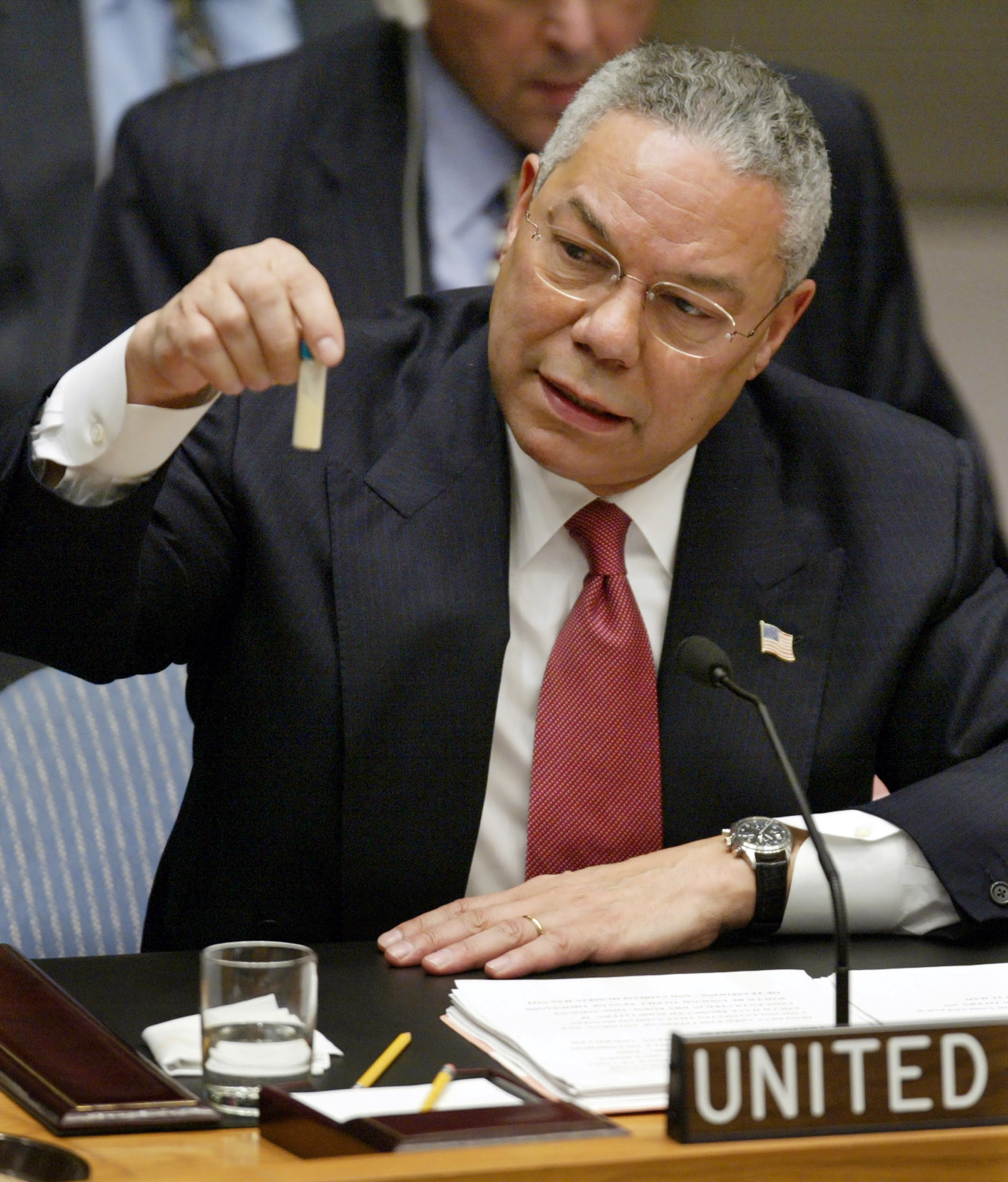
In 1995, General Powell announced that he had registered as a Republican, and he received a thunderous ovation when he spoke at the Republican convention the following year. Although he did not forswear future political involvement, he has declined to seek elective office.
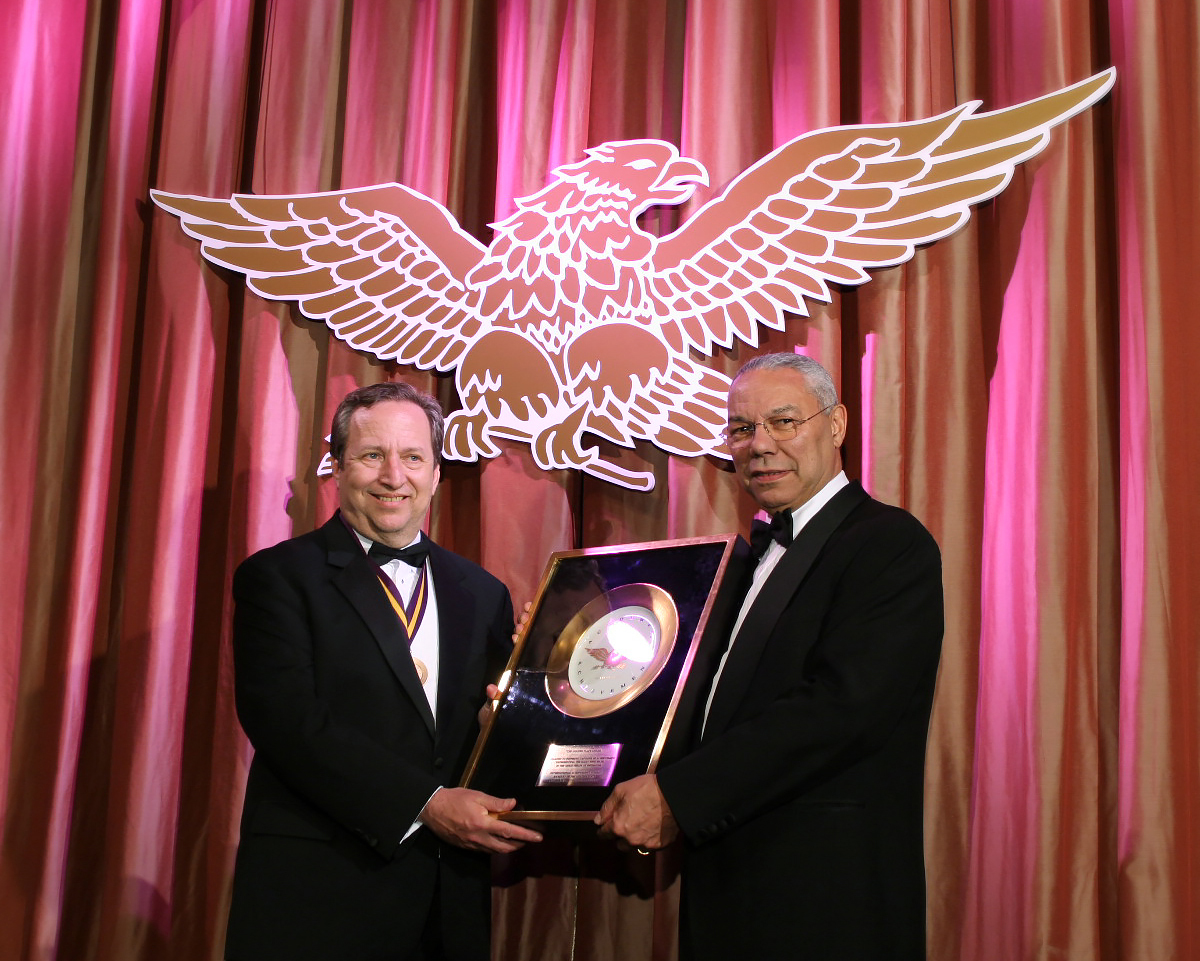
In 1997, he returned to his alma mater, the City College of New York, to open the Colin Powell Center for Policy Studies, offering high-achieving CCNY students the opportunity to prepare for careers in policy and public service. For the rest of the decade, he continued his work with young people as chairman of America’s Promise: the Alliance for Youth.
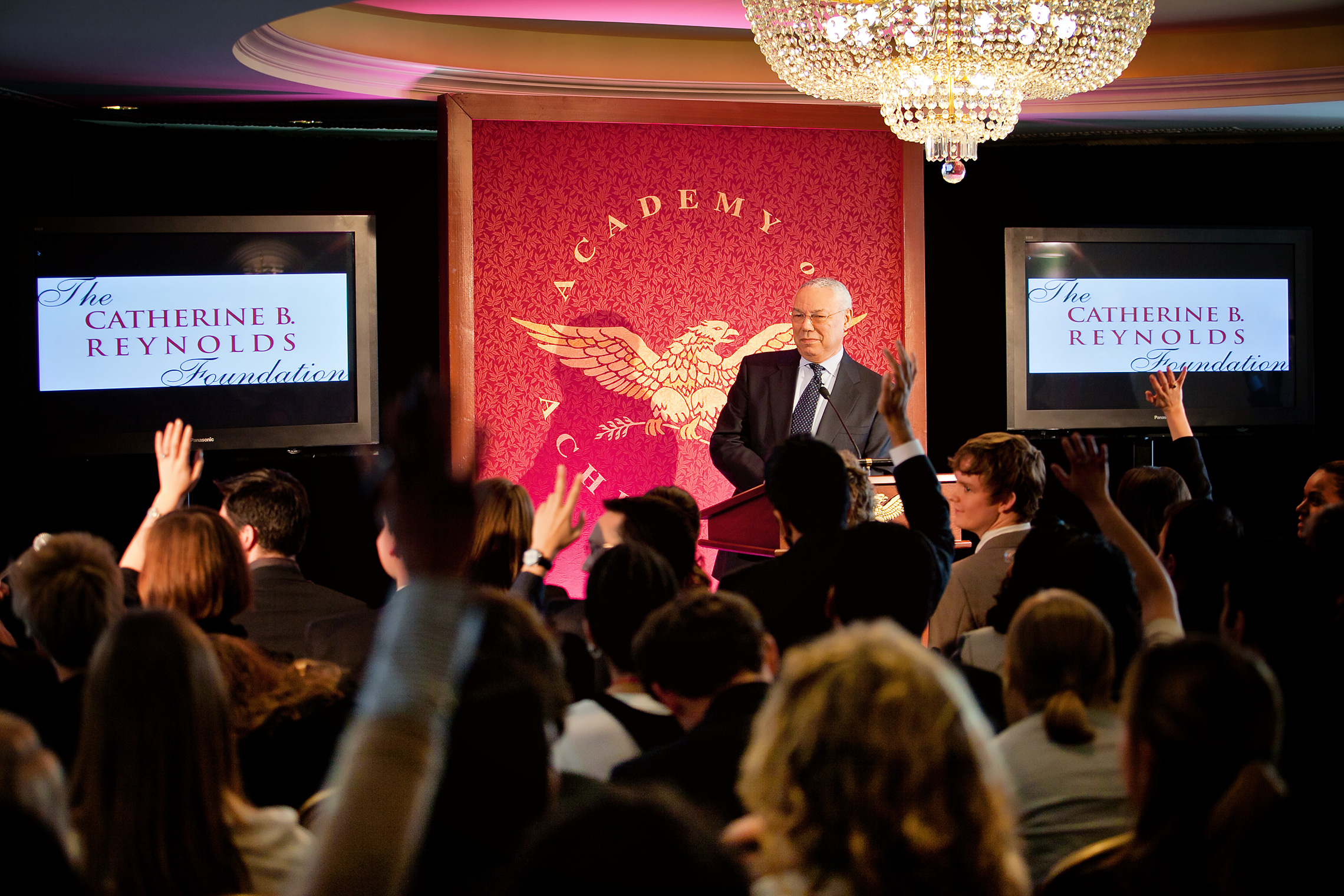
In 2001, newly elected President George W. Bush appointed Colin Powell to be Secretary of State. At the time, it was the highest rank ever held by an African American in the United States government. In his first months in office, Colin Powell won praise for his efficient administration of the State Department, and cordial relations with other governments. Following the terrorist attacks of September 11, 2001, Secretary Powell took a leading role in rallying America’s allies for military action in Afghanistan.
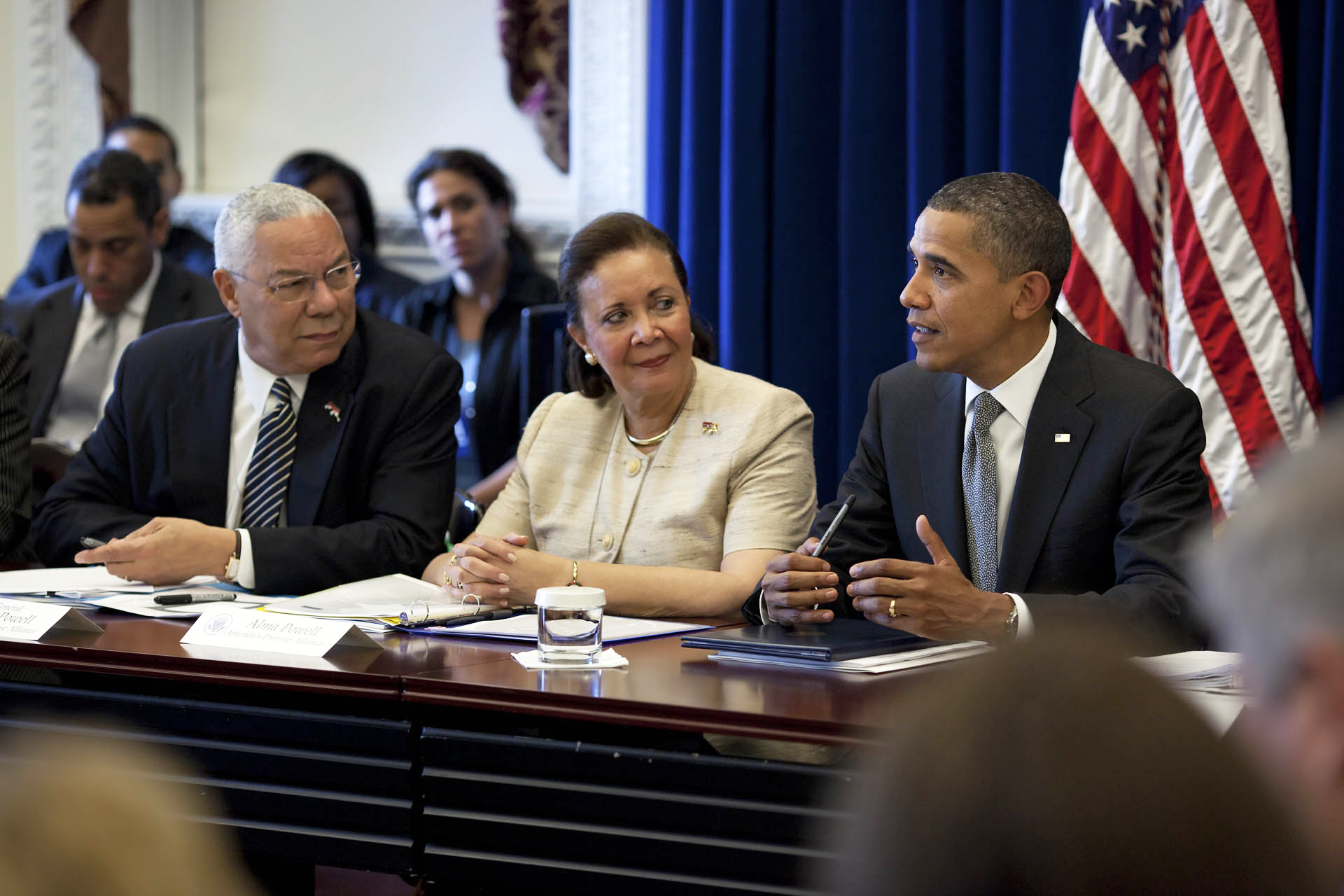
It was reported that Powell had serious misgivings about President Bush’s subsequent plan to invade Iraq and topple the regime of Saddam Hussein. Nevertheless, Powell appeared before the Security Council of the United Nations, where he presented evidence purporting to prove that Iraq had concealed an ongoing weapons development program, in violation of UN resolutions. Powell’s testimony was instrumental in persuading many members of the U.S. Congress to support military action against Iraq. Some of this evidence was later discredited, and when American forces found no evidence of a weapons program in Iraq, Secretary Powell was subjected to harsh criticism. Shortly after President Bush’s re-election in 2004, Powell stepped down as Secretary of State.
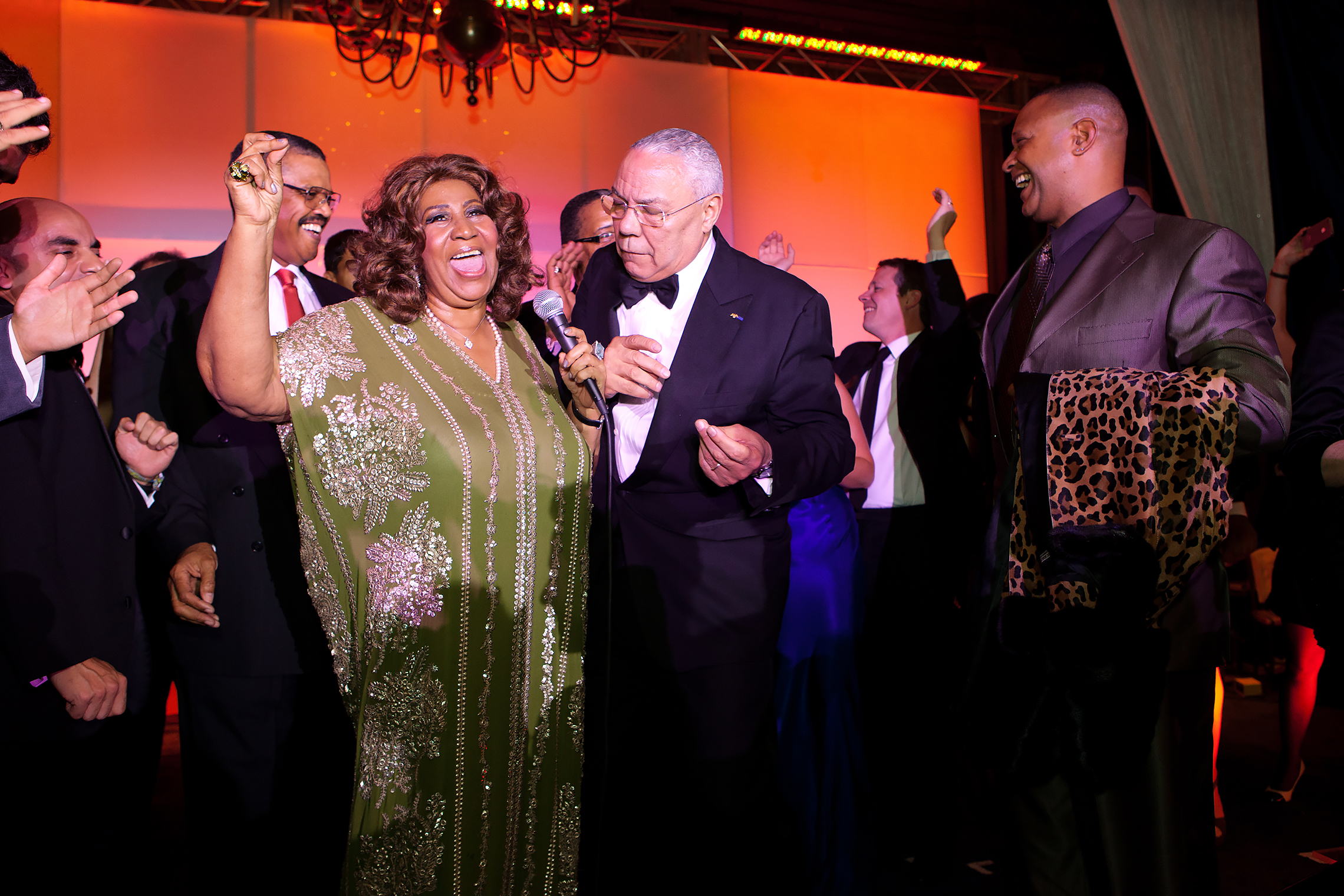
Although he maintained a low public profile after his resignation, Colin Powell at times offered nuanced criticism of the conduct of the war in Iraq. He declined to endorse any Republican candidate for president in 2008. However, just weeks before the presidential elections of 2008 and 2012, he announced his support for the Democratic nominee, Barack Obama. In 2016, in emails leaked by a hacker, Colin Powell offered unvarnished and highly negative opinions about both presidential nominees Donald Trump and Hillary Clinton.
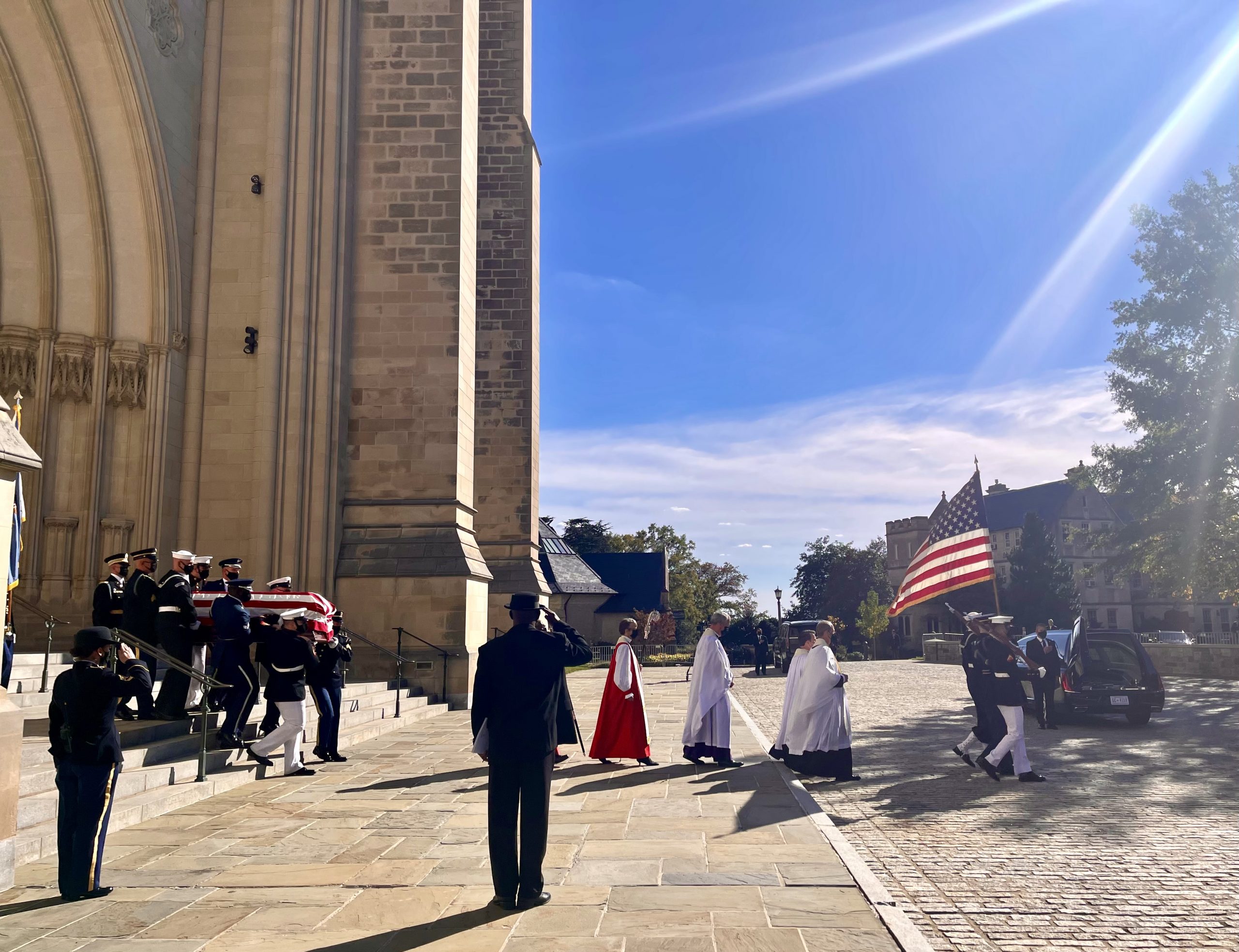
On October 18, 2021, Colin Powell died of complications related to Covid-19 at the age of 84. Powell had been fully vaccinated but had undergone treatment in recent years for a blood cancer, multiple myeloma, which is known to weaken the immune system. Powell’s private funeral service was held on November 5, 2021, at the Washington National Cathedral, where attendees included President Joe Biden and first lady Jill Biden along with former President Barack Obama and his wife, Michelle; former President George W. Bush and his wife, Laura; and Hillary Clinton, the former secretary of state and first lady.

“Our struggle will not be over until every American is able to find his or her own place in our society, limited only by his or her own ability and his or her own dream.”
In 1995, when retired General Colin Powell took himself out of the running for President of the United States, he was leading every candidate in every poll. At the time, his autobiography, My American Journey, was a national bestseller. Millions of Americans have been inspired by his life story, from his boyhood in the South Bronx, through service in Vietnam, to his term as Assistant to the President for National Security Affairs.
General Powell was the first African American and the youngest officer ever to serve as Chairman of the Joint Chiefs of Staff, the highest-ranking officer in the United States military. Most Americans got their first vivid impressions of General Powell in this role, at his televised press briefings during the Gulf War. His articulate, forthright manner and unassuming dignity made him a favorite of statesmen, journalists and the general public. In 2001, President George W. Bush appointed him Secretary of State, a position that placed him at the head of America’s foreign policy, and fourth in line of succession to the presidency itself. He served throughout the first term of the Bush administration, a period that included the September 2001 attacks on the United States and the subsequent wars in Afghanistan and Iraq. He remains one of the most admired Americans, a leader whose prestige transcends party and ideology.
(General Colin L. Powell was interviewed twice by the Academy of Achievement: In June of 1992, when he was Chairman of the Joint Chiefs of Staff, and again in May of 1998, two years prior to being named by President George Bush as Secretary of State.)
What do you think are the most important documents of this century?
Colin Powell: The Declaration of Independence, the Constitution and the First and Second Inaugural Addresses of Thomas Jefferson are my four favorite documents. The Emancipation Proclamation, and following that, the Gettysburg Address, which was essentially a restatement of the Constitution and the Declaration. But coming into this century and broadening it, I would just give you one that you’re going to find surprising, and that is the Helsinki Final Act, 1975, which was the Declaration of the Rights of Man. It was as a result of one of these international negotiations. President Ford, in one of the more historic acts of this century, but in one of the more underappreciated acts of this century, going against domestic political opposition, signed the Helsinki Final Act, which essentially said there are universal rights of men and women. In order to get the Soviets to also sign that, we had to make some accommodations with respect to we shouldn’t change borders. Some people said, “Aha! You’re validating Soviet occupation of the Eastern European countries.” Well, they were there. We didn’t validate them, we still argued against it. But I believe that getting the Soviets to agree to that was a poison pill that they took that helped bring about the end of the Cold War and the demise of this evil empire. Acknowledging that men and women, no matter where they are, no matter what government they are under, have certain universal rights.
I go back to the Declaration, because that’s where we got it from: “All men are created equal, and are endowed by their Creator with certain inalienable rights.” We sometimes forget the phrase that comes after that: “Governments are instituted among men to secure these rights.” That could set me off on a discussion of affirmative action and other things, as well as what happened after the Helsinki Final Act. But the role of government is to secure the universal rights of men and women.

Does that include affirmative action?
Colin Powell: Yes, in my judgment.
The Declaration and the Constitution, which I consider just absolutely marvelous, profound documents. They didn’t apply to people who were black, and that’s the truth. In fact, the Constitution was used as a means of suppressing blacks. In the Dred Scott Decision, the Supreme Court said that a human being can be property if they’re black, and only if they’re black. You can’t be property if you’re white. If you’re black, you can be property and returned to an owner. That was done by the Supreme Court as a matter of constitutional law; they based it on the Constitution.

Plessy vs. Fergusson, in 1896, sanctioned separation on the basis of color. As long as you treat the races equally, then you can separate them. But the whole reason to separate them was to treat them unequally. It essentially validated Jim Crow segregation, disenfranchisement of an entire group of people who were black, giving them no economic opportunity. “Don’t educate them. Continue to treat them as tenth class citizens.” And it rested on the decision of the Supreme Court of the United States, which was founded on the Constitution. And that continued up to my lifetime.
So in 1963 when I came home from Vietnam, having served my nation, having sworn an oath to the Constitution to serve my nation, I came home and was denied access to restaurants and refused service in hotels and motels. If my skin was white, or if I could shine it up a little more than it is and put a hat on my head so my hair wasn’t showing, as long as I could prove I wasn’t black, then I was free to enjoy these benefits. The fact that I was a soldier of the nation was irrelevant. And this all rested on the Constitution, according to the courts. And according to some 30-odd presidents, and according to some 180 Congresses. This isn’t ancient history to me, this is my lifetime, my generation. I choose not to forget that we have this history. No one loves the Declaration or the Constitution more than me, but you have to see it in its correct perspective. And because it was so misused over those years, and it took us 200 years to get into the spirit that was intended by the Founding Fathers, even though they knew they couldn’t do it in practice at that time, even though it took us 200 years, we can’t ignore the legacy of that history that is still contaminating the present. I think tools such as affirmative action are useful to help us rub out, sand down this inequity that continues to haunt the present, that came from the past. Some say, “We don’t wallow around in old history.” Why not? We wallow around in the beauty of the Constitution and the Declaration, that’s old history. So let’s wallow around in all of it, as did the black people for all those years. Therefore, I think it is appropriate to use tools such as affirmative action and other similar tools.

I consider all of these to be transitional tools and temporary tools, but they’re still necessary. And if anyone says they’re not necessary then let’s go visit some inner cities and look at 100 percent segregated schools in 1998. They’re segregated by race and class, and class and race are all mixed up. We’ve got to get every one of these children educated and into a college. Those who are able to go to college and want to go to college and can qualify for college. This isn’t for people who are not qualified. But give them that extra added advantage to get into universities, get them into the middle class and break the cycle, in that family, for that child, forever. That’s what will speed things up.
I was told the same thing in 1963 and ’64: “We don’t need a civil rights law. That’s wrong. It’s personal property. If they don’t want to serve blacks in a restaurant or on a public highway, so what?” So what? Put some shoe polish on your face and see what you think about it! This is a wonderful country. It was unthinkable for me to be Chairman when I came in the army 40 years ago next month. It would have been unthinkable for me to have said, “You’re going to be Chairman? Come on!” But it happened. And so, what will happen in one more generation? Maybe we’ll get rid of all of these residual problems. But we’re not going to get rid of them by just ignoring them or saying, “Gee, just do better,” or “It’s your fault.” We have to do better and to some extent we have to make sure our children don’t ignore what their forefathers did to get us to this point. Excellence in performance and high standards are important, but I think it’s also appropriate to use tools such as affirmative action to make sure all doors are open.

Between tours in Vietnam you were stationed at Fort Benning, Georgia, where you experienced the reality of segregation. Could you share some of those memories? What was not open to you?
Colin Powell: Fort Benning is a large Army installation in Columbus, Georgia. In those days, the ’50s, and well into the early ’60s, until the Civil Rights Act of 1964 was passed, and the Voting Rights Act of ’65, it was in the heart of the segregated South. On base it was wonderful. You could go anywhere, live anywhere, do anything you wished to do. But as soon as you went over the hill, and down into Columbus, Georgia, it was a totally segregated existence.
Colin Powell: The story I’ve told many times is of coming home from Vietnam in 1963, having been away for an entire year, and my wife had had a son while I was away. I was busy trying to get a home ready for my family in the area. I couldn’t get on base yet, the housing wasn’t available. So I found a place in Phoenix City, Alabama, which was not a great place to live as a black in those days.
One night after working on the house, I tried to buy a hamburger at a drive-in place in Columbus. I knew I couldn’t go in, I didn’t try to go in. I just tried to order it on the little speaker box for it to be brought out. The young lady came out to take my order, the way it was done in those days, and she looked in the car and she asked me if I was Puerto Rican, and I said “No.” And then she asked me if I was an African student studying at the Infantry School. I said, “No, I’m not an African student studying at the Infantry School, I’m an American.” And she said, “I’m terribly sorry, but I can’t bring it out to the car. You’ll have to get out and go around to the back.” And I said, “Thank you very much, no thanks,” and I drove off. That wasn’t terrifying, it was just deeply, deeply hurtful and disappointing.
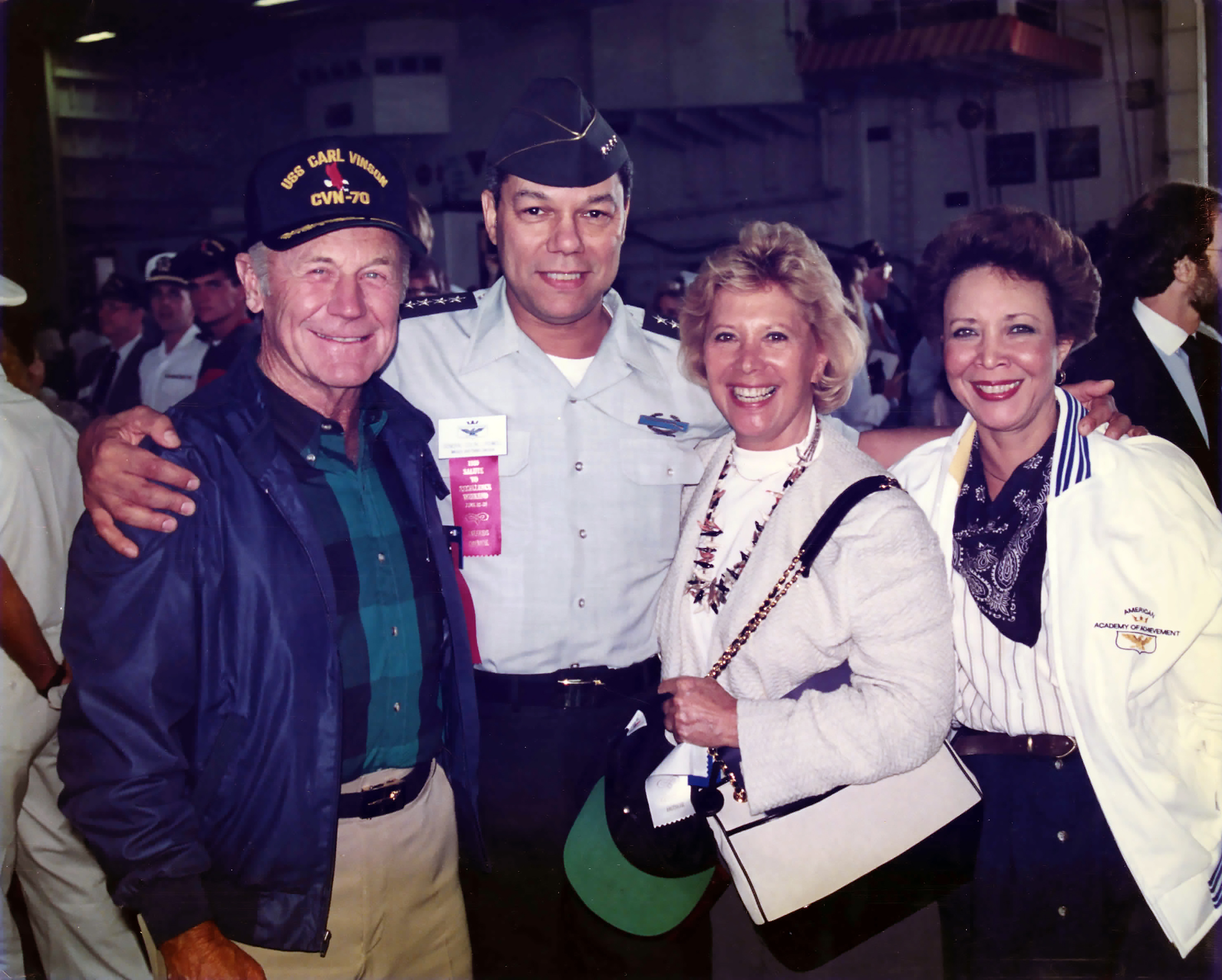
What effect did that experience have on your own resolve to achieve?
Colin Powell: If anything, it encouraged me, motivated me, caused me to find ways to demonstrate to people who held such beliefs that their beliefs had to be incorrect, had to be a lie.
Colin Powell: There’s a great story from the Civil War, where a Confederate general is writing to the Confederate government in Richmond, and it has to do with the issue of allowing blacks to serve in the Confederate army, or conscripting them for the Confederate army. And this Confederate general writes to Jefferson Davis and he says, “Don’t let this happen. Whatever you do, don’t let this happen. Because if blacks can wear a uniform with brass buttons, and a belt with a brass buckle, and if they can go and serve and lay down their lives, they are the equal to us. And if that is the case, the whole theory of the Confederacy is a lie. So whatever you do, don’t let black men serve.” The history of the black experience in the United States military for 300 years is a repetition of that. Black men were always willing to serve, as were black women, in the hope that their service as equals, willing to lay down their lives, and fight for what their country believed in, would transfer over into civilian life. They were disappointed for most of our history. But with each conflict, things got a little bit better, until we finally reached the period where a black man, or a black woman, can rise to the top. So the answer to your question is, yes, it motivated me to fight back and to prove that if I’m your equal in performance, then segregation has to be a lie.

How did your service in Vietnam affect you, personally and professionally?
Colin Powell: When I got orders to Vietnam in the summer of 1962, I was excited and very happy. I’d been selected by my government to go to a combat zone and to serve a purpose that was noble. And we were fighting communism, and we were going to try to help the South Vietnamese protect themselves from communism and defend their way of life, let them make their own choice as to how they should be governed. And so, it was a very noble undertaking and it was wrapped in the mystique of the Kennedy era. And I was one of the first group of advisors, actually the second group of advisors to go in, about 15,000 of us at that time. And so, for a young 25-year-old infantry captain this was it, this was the thing to do.
And so I went and did my job and I did it for a year. I came back after a year to rejoin a family that I really didn’t know, a son I’d never seen who was born while I was gone, and a wife who I’d known for nine months and been away from for a year. And going back to that, but also going back with a little bit of concern about Vietnam. Because I couldn’t see that we’d made much progress in the year I was there, tromping through the jungles. And the enemy seemed to have the initiative and the advantage.
I came back thinking, “This is a very big problem, and it’s going to take a lot more than what we’re doing. And it’s not clear that the South Vietnamese are really up to the task, or really represent the kind of government that we should be that anxious to defend.” They had a lot of work to do, to prove themselves to their own people. And to prove themselves worthy of the kind of support that we were increasingly giving them.

How was your second tour in Vietnam different from the first?
Colin Powell: When I went back some five years later, a lot had changed. I had served with South Vietnamese soldiers. But it was now an American war and we were bringing all of American technology to bear. And I was now a major, not a captain, a little more senior. I’d also seen some terrible things happen in my own country in that five-year period. The assassination of President Kennedy, the death of Martin Luther King, riots, church bombings during the civil rights revolution.
And 1968 was a terrible time in this country. A president who said he wasn’t going to run again, and the war had turned sour. And when I got back and spent another year there, we were applying American firepower and technology, but it wasn’t clear that we had moved any further along in recapturing the initiative or persuading the North Vietnamese that this is not a course they should pursue.
They were determined to pursue it to the end and they would spend whatever number of lives it took to win. And it was a war they’d been fighting for 40 years. They understood what they were about, and they were prepared to make the supreme sacrifice. We no longer clearly understood what we were about, and we were losing hundreds of young men a week, but it was not clear that we were in it to prevail, or we could prevail.
That was pretty much known by 1968/’69, and I came home in ’69, but it took us several more years to create the circumstances that we could get out and turn it over to the South Vietnamese.
Colin Powell: And then I think in one of the sad chapters of American history, having promised the South Vietnamese that we would come to their assistance with more weapons and ammunition if they needed it, the United States Congress finally abandoned them. That went against our word. Whether they would have prevailed even if we hadn’t abandoned them is, I think questionable. I think they would probably have lost anyway, but I wish they had not lost on the heels of an American abandonment. So it was a very dismal period. And when it was all over, I was still a professional soldier, now a lieutenant colonel. And we were in an army that had been seen as the loser in this war. We were shaken to our core. We had lost a generation of leaders. We’d had the scandal of My Lai. We had racial relations. The American people said, “We want out of the draft. We no longer want to have a draft.” In fact, they were separating themselves from the army. “You just go out and recruit and that’s what you get. But no more draft.” So we ended the draft. There was an estrangement between the American people and its military. But I was a professional soldier, and so it was my job to work in that world and try to fix it, repair it. And one of the things I’m proudest of in my life is that over the next 15, 17 years, working with great leaders and finally with the new political leadership that came in with the Reagan Administration — political leaders who told us to be proud of ourselves once again and gave us the resources to really finish the transition to a modern, powerful army — we became a force that the nation once again was proud of. And we saw the result of that in Desert Storm.

We’d like to ask you about some of the qualities that you think go into your job. What role does your gut play, your instinct, when you’re making monumental decisions?
Colin Powell: You’re really going for the secrets now.
Colin Powell: One of my little rules is, you get all the facts you can. You get all of the analysis you can. You grind it up in your mental computer and then, when you have all the facts available to you, go with your instinct. I go with my instinct a great deal, but it is not just snap-go. You have to learn the technique of informing your instinct, of educating that little place down in your stomach where instinct resides, so that it is not blind instinct, but informed instinct. Built into each of us is a little calculator that can make judgments that will never appear on a piece of paper. And sometimes you just know something’s right — you can’t prove it to anybody — or you know something’s wrong. Little ethical circuit breakers you carry around inside of you, or little right and wrong circuit breakers you carry around inside of you. So, I go with my instinct a great deal.


